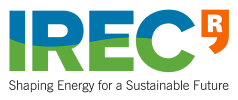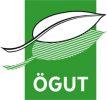Decarbonisation pathways for local authorities, citizen and businesses
Our Partners

Potsdam Institute for Climate Impact Research (PIK), Germany
PIK, founded in 1992, is a non-profit research institute addressing crucial scientific questions in the fields of global change, climate impacts and sustainable development. It is PIK’s twofold mission to advance the scientific frontier on interdisciplinary climate impact research for global sustainability and to contribute knowledge and solutions for a safe and just climate future. Researchers in the natural and social sciences from all over the world work closely together to examine the earth system‘s capacity for withstanding human interventions and devise options for a sustainable development of humankind and nature; bringing together the concepts of global commons and of planetary boundaries are key in this interdisciplinary endeavour.
The LOCALISED project is coordinated within the Urban Transformations group in Research Department 2 dealing with Climate Resilience.
Website: www.pik-potsdam.de


Euro-Mediterranean Center on Climate Change (CMCC), RFF-CMCC European Institute on Economics and the Environment (EIEE), Italy
EIEE was founded in 2018 by two institutes of excellence in environmental economics and climate science: Resources for the Future (RFF) and Euro Mediterranean Center on Climate Change (CMCC). The institute’s mission is to improve environmental, energy, and natural resource decisions through impartial economic research and policy engagement with the aim to facilitate the transition to a sustainable, inclusive society. Researchers explore the determinants of sustainable innovation, the design of innovation policies, the role of digitalization in the development and diffusion of environmentally friendly technologies, and in addition they examine the repercussions of innovative systems on social and economic outcomes, including distributional and equity issues.
Websites: www.eiee.org; www.cmcc.it

Forschungszentrum Jülich, Institute for Energy and Climate Research, IEK-3, Germany
Forschungszentrum Jülich is a publicly funded research center with a very wide field of research. The main focus of IEK-3 is the development of energy system models for the analysis of the transformational processes taking place in the supply and use of energy in Germany and beyond, in accordance with the political framework. Another area of focus is the techno-economic evaluation of energy systems based on energy demand, greenhouse gas emissions and costs, as well as consideration of the tailor-made integration of the national energy system into European and global supply networks. In addition, the analysis and evaluation of resource availability under the changing boundary conditions of future energy systems is being undertaken. The main goal is the provision of actionable knowledge for energy transformation for decision-makers in politics and business.
Website: https://www.fz-juelich.de/iek/iek-3/

IREC – Catalonia Institute for Energy Research, Spain
IREC is a publicly funded institution based in Catalonia that conducts research and promotes innovation over a wide range of energy related science and technology fields. IREC contributes to sustainability via development of new technological solutions, promotion of scientific and technological know-how related to clean energy and its efficient use as well as transfer of solutions and expertise to market actors.
Two groups of the Energy Efficiency for Systems, Buildings and Communities area (ECOS) are involved in the project. The Thermal Energy and Building Performance Group has wide expertise in dynamic energy simulation and optimization to assess energy consumption and cost of energy efficient actions and retrofitting measures. The Power System (PS) Group has deep expertise in several key grid development areas, including grid integration of renewable sources, security, stability, observability and controllability of transmission and distribution networks, power grid resilience, cyber-security, and energy storage.
Website: www.irec.cat/

University of Twente, Faculty of Geo-Information Science and Earth Observation (ITC), Netherlands
The Faculty of Geo-information Science and Earth Observation (ITC) of the University of Twente is recognized worldwide for achievements in teaching, research and capacity development in the field of geo-information science and earth observation.
The Department of Urban and Regional Planning and Geo-Information Management is involved in the LOCALISED project. It aims to empower society with specialized knowledge and expertise on spatial and temporal interactions between people, land tenure, land use, urban systems and the underlying governance processes to support inclusive planning and decision-making.
In the research group PLUS, people are our focus. Everyone is included, from societal thought leaders, to government policy-makers, to high-level civil society advocates – through to entrepreneurs and citizens, including the disenfranchised. PLUS focuses on understanding the spatial information needs of society and responding to those needs in responsible ways – as tools, as systems, as infrastructure, or as ways of thinking. Our work sits at the nexus of urbanization, land tenure, governance, climate change, and transportation – and the grand challenges of sustainability and social equity in the age of the anthropocene.
Website: www.itc.nl/

ÖGUT – Austrian Society for Environment and Technology, Austria
ÖGUT is a non profit organisation, aiming at the transition of economy and society towards a sustainable future. As a scientific platform for sustainable development OeGUT is performing networking activities with around 90 organisations and institutions from ministries, public authorities, enterprises, interest groups and environmental organisations.
ÖGUT deals with relevant issues on the interface between environment and technology. Main topics are: Consumption and Quality of Life; Energy; Gender and Diversity; Green Investment; Innovative Building and Public Participation.
Besides project and program management, ÖGUT is specialised in Research, Consultancy, Strategy Development; Information, Communication and Facilitation; Networking Activities.
ÖGUT has a long experience in cooperating with international organisations, as it has been involved in many European Projects such as FP6 ERANET Project ERABUILD, INTERREG-Projects with new EU member states, IEE projects EffCoBuild and PASS-NET, FP7 Building up, FP7 EcoWeb, ERDF Project AlpEnMat, LEONARDO DA VINCI Project SRI etc.
Website: www.oegut.at/

Szewalski Institute of Fluid-Flow Machinery, Polish Academy of Science, Poland
The Institute of Fluid-Flow Machinery belongs to the Polish Academy of Sciences. Present research areas include distributed heat and power generation on the small scale based on renewable resources, (m)CHP technology, plus energy technologies for private buildings, photovoltaics, exploitation and thermal-hydraulic diagnostics of steam turbines, machine mechanics (computer analysis, vibrations, rotor dynamics, model-based diagnostics, expert systems), high-temperature gasification and gas/syngas cogeneration, rotor dynamic modelling, design and testing, fuel cells and hydrogen/biogas cogeneration, new materials, condition monitoring and smart structures, plasma and laser engineering and small hydro power plants.
IMP PAN has created an international network of energy stakeholders around the KEZO research centre (so called “Friends of KEZO”) consisting of research and business partners as well as for policy makers, municipal authorities, NGOs, and wider public, including the youngest citizens. IMP plays a key role in the development of cooperation and innovation support structures within and outside Gdansk province for low-carbon energy transition, and an important organisation in realising energy cluster scheme in the region by strong collaboration with various energy stakeholders.
Website: www.imp.gda.pl/

T6 Ecosystems srl, Italy
T6 is a research and consulting SMEs with an interdisciplinary team devoted to applied research, bringing research and innovation results to society and maximising their positive impacts. The company has a long-standing experience in research and the coordination of national and international R&D projects, most of which are funded within the EC Research Framework Programmes.
What makes T6 different is the capability to look at innovation at the crossroads between technology, user acceptance and cultural diversity within the global implementation of its services. We see the integration of user-centred research within innovation and development projects as the missing link in making impact happen.
In this framework, the main activities of T6 are: the co-design of innovation processes and socio-technical tools, socio-economic impact assessment of research and innovation initiatives; policy analysis; scientific communication and project dissemination. T6 also bridges Project Management and Scientific Research, where Project Management is a means to support the “knowledge society and economy”.
Website: www.t-6.it/

Climate Media Factory, Germany
The Climate Media Factory is a media, consulting and concept agency in Potsdam. CMFs communication tools and stories bring scientific knowledge and innovative concepts for sustainable futures to decision-makers and into society. To do this, they bring narrative, creative and scientific expertise to the table. CMF emerged from a media laboratory of the Potsdam Institute for Climate Impact Research and the Babelsberg Film University. To this day, the focus is on communicating sustainable development issues. CMF is a service provider, but also a partner for research and innovation projects.
Website: www.climatemediafactory.de

City of Barcelona, Agenda 2030 Department, Spain
The Barcelona City Council is a multi-purpose political institution, led by 41 elected councillors who, in turn, elect a Mayor as chief executive. The 2030 Agenda Commissioner (technically supported by the Agenda 2030 Department, both created in 2019), is endowed with the task of fostering the implementation of the UN Agenda for Sustainable Development, since it is for all levels of government to face the social, economic and environmental challenges of globalization, leaving no one behind.
Its specific functions are:
1. Creation of the Barcelona 2030 Agenda, resulting of the adaptation of the SDGs formulated by the United Nations to the context, needs and political will of the city. Each SDG target has been given an operational and measurable definition of the result to be achieved in 2030.
2. Verification of the alignment of municipal action (plans and budgets) with the targets of the Barcelona 2030 Agenda.
3. Follow-up of the degree of achievement of the 2030 Agenda, as well as the municipal effort in each SDG target, through specific monitoring and reporting systems.
4. Promotion of the involvement of the municipal organization in the 2030 Agenda, through specific communication, training and the promotion of sustainable practices on-the-job.
5. Creation and management of spaces for deliberation and eventually co-decision on Agenda 2030, within the City Council (Joined-up commission) and outside of it (Academic Advisory Council and Stakeholders’ Advisory Council).
6. Alignment and collaboration with the 2030 metropolitan, regional and national agendas.
7. Promotion of strongly innovative projects deemed fundamental for the achievement of the 2030 Agenda and requiring cross-cutting departmental collaboration.
Websites: www.barcelona.cat/, ajuntament.barcelona.cat/agenda2030/

City of Vienna, Department for Energy Planning, Austria
The City of Vienna pursues ambitious energy goals to achieve a sustainable and efficient energy system and to accelerate the use of district heating, waste heat and renewable energy forms. The energy planning department of the City of Vienna initiates and designs the future-oriented development of Vienna’s energy system. The focus lies on promoting energy innovations, initiating and supporting pilot projects, coordinating and further developing energy-related concepts, bundling of competencies and the transfer of knowledge. Furthermore the department develops participatory projects like the Participatory Climate Budget, as the transition towards a climate-neutral city can only be achieved with all citizens on board.
Website: www.wien.gv.at/

Metropolitan Area Gdansk-Gdynia-Sopot, Poland
The Metropolitan Area Gdansk-Gdynia-Sopot (MAGGS), located in Pomorskie region, is one of the fastest growing areas in Poland and the Baltic Sea Region being an important transport, energy and ITI hub. The MAGGS has a polycentric nature created by the fusion of three core cities: Gdansk, Gdynia and Sopot.
The MAGGS Association was established in 2011, as the result of voluntary agreement of the local and county governments around cities. Currently, 59 local governments operate within MAG (67% of the Pomorskie population). It should be considered mainly as a grass root establishment acting to respond to the growing coordination needs (multi-level flexible governance) beyond the administrative borders, which resulted in the MAGGS development strategy until 2030. At the same time, MAGGS was born as an answer to some top-down incentives connected with Cohesion Policy implementing model in Poland.
The most important goal of MAGGS is to take actions that improve the comfort and quality of life of the inhabitants. We want our metropolis to develop economically and socially and to be able to compete with other metropolitan areas in the country and in the world. We operate in areas such as: public transport, labour market and activation of residents, social economy, integration of migrants, culture and health promotion, development of local enterprises, environmental protection, spatial planning and promotion.
Website: www.metropoliagdansk.pl
